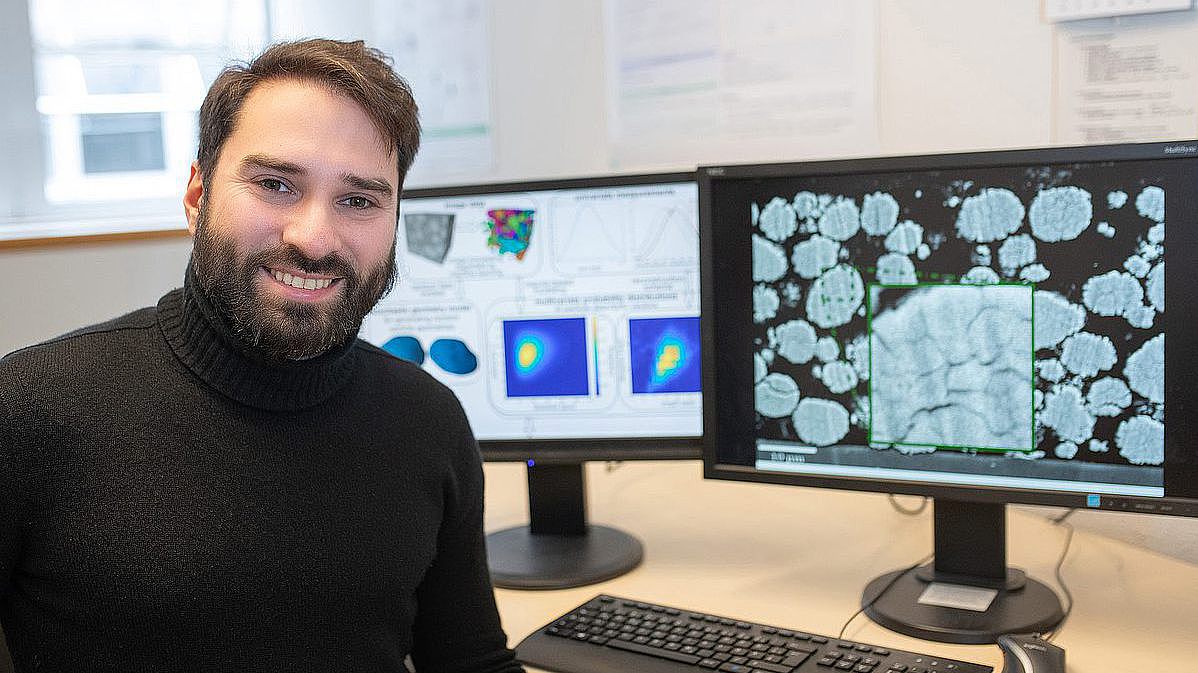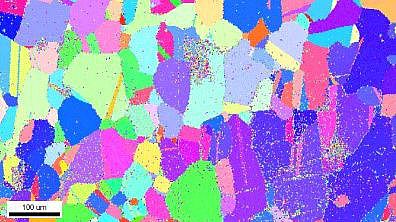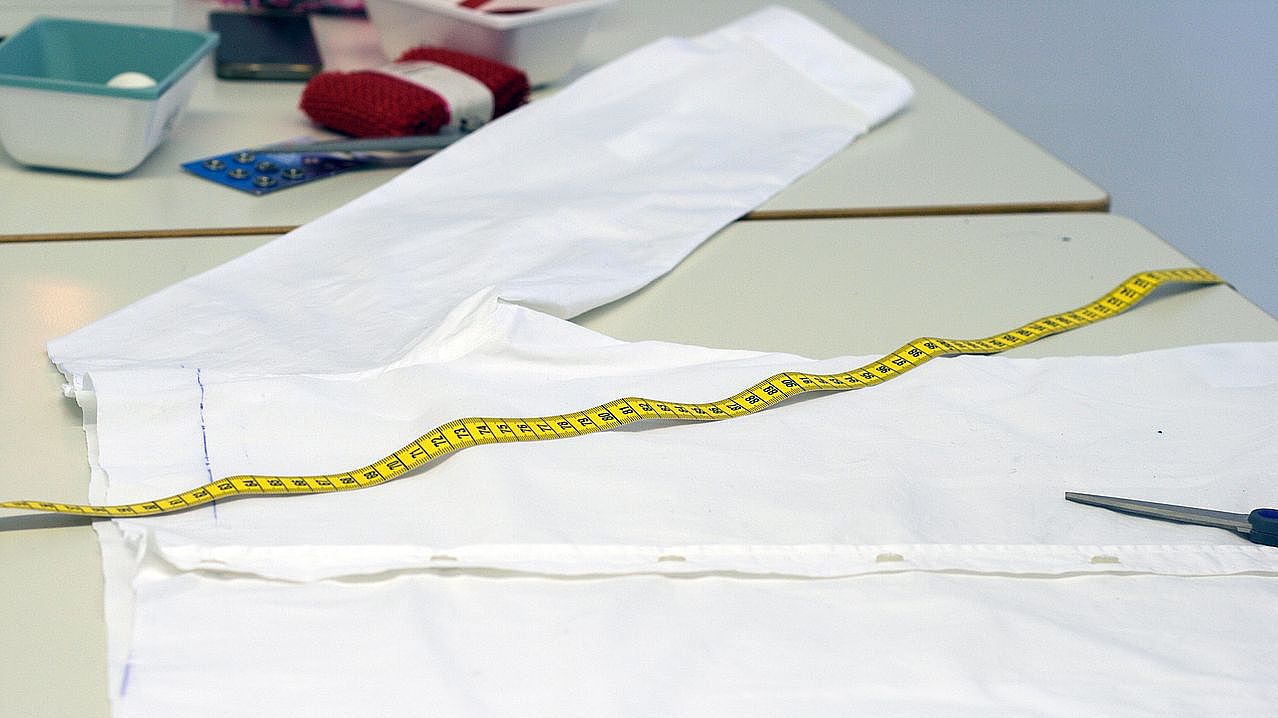Research at Our Faculty
Many of the faculty's research activities fall into one or more of the following areas:
![[Translate to English:] Darstellung einer Halbzelle](/fileadmin/_processed_/8/8/csm_Halbzelle_FeststoffKonzentration_StromdichteStreamlines_ef46e74c97.png)
Future Technology -
Mathematics
Whether data science and artificial intelligence, battery research, pharmaceutical drug development, personalized medicine or quantum science: mathematics is the key to technological progress. From basic research and the development and analysis of specific models to concrete applications in cooperation with other disciplines or industry –mathematics research at our faculty contributes to progress.

Data
Economy
Data plays an increasingly important role in Growth and innovation. Our research contribution to this development covers a wide range of relevant issues: The data analytics and the measurement of data quality are just as much research topics as the explainability and acceptance of data-driven forecasts or the functioning of digital markets.

Interdisciplinary topics and
-technologies
An interdisciplinary research topic of the faculty is risk management and the design of financial services, from investments and insurance to digital currencies. Sustainability is another cross-cutting topic that is becoming increasingly important in a growing number of areas. Key interdisciplinary technologies for research at the faculty are data analytics and artificial intelligence.
To learn more about our research, please visit the webpages of the faculty’s institutes or browse the sample research projects below. If you are interested in doing research with us, you can contact the institutes relevant to your interests about opportunities for a Ph.D. or research visit, or check if there are suitable job opportunities. An overview of interdisciplinary research in risk management and insurance is provided in a separate topic dossier.
Research projects of the faculty
Quicker exit from the escape room Financial bonus boosts performance of creative teams
Does money boost motivation when teams have to solve complex problems? Researchers from universities in Ulm, Munich and Tilburg have investigated this in a large-scale field study. They observed over 1000 teams in escape rooms, who had to solve tricky puzzles under time pressure and work together in an innovative and solution-orientated way. Their analysis shows that monetary incentives significantly reinforce team performance without strongly impairing intrinsic motivation, and that they can have a positive influence on team organisation. The study was published in the prestigious Journal of Political Economy. read more …

Ambitious Targets and Moderate Competition: How Companies Retain R&D Talent for Longer
Retaining qualified employees is one of the key challenges that companies face. Researchers from Ulm University (Prof. Mischa Seiter), WU Vienna (Prof. Isabella Grabner), the University of Krems (Prof. Markus Wabnegg) and ZU Friedrichshafen (Dr Henning Wirth) have investigated how companies can better retain their creative employees. read more….

Hospitals caught between patient welfare and economic viability: what role does transparency play?
German hospitals are faced with a dilemma: they are expected to provide medical care and at the same time to work economically. However, many hospitals are unable to cover their costs, which increases the pressure on chief physicians. In addition to medical outcomes, their performance is increasingly measured against financial targets such as budget compliance, occupancy rates and cost reduction - requirements that are often at odds with their medical self-image, which is centred on healing patients. The performance measurement systems frequently used by hospital management are therefore often viewed critically by doctors. read more …

How do performance comparisons affect employee performance? Sometimes less is more
A research group from Ulm University (Prof Mischa Seiter & Dr Maximilian Kohler) and the Frankfurt School of Finance & Management (Prof Matthias Mahlendorf & Prof Timo Vogelsang) has investigated the effects of Relative Performance Information (RPI) in the context of a supermarket chain Read more...

The art of portraying the real world in numbers: Mathematicians at Ulm University develop "digital twins"
The so-called “digital twins” are virtual models of objects and processes that build a bridge between the physical and digital worlds. As digital replicas, they aid in the development and improvement of materials and products, as well as manufacturing and testing processes. At Ulm University, mathematicians are developing models for things such as battery materials, the simulation of test procedures and the prediction of wear and ageing processes. Read more ...

How much do green bonds help the environment?
Researchers at Ulm University and the University of Cairo have found that companies that raise a particularly large amount of capital via green bonds reduce their greenhouse gas emissions at an above-average rate in the following years. However, this correlation is only observed in the analysed data for companies that have little financial leeway. It is therefore worthwhile for climate-conscious investors to take a closer look. Read more

Data-based stochastic 3D structural modelling for automatic learning of mechanical properties
A large number of materials have a polycrystalline structure. This means that they consist of many individual crystals that are separated from each other by grain boundaries. This also includes titanium aluminides, which are used for the construction of engines or gas turbines, for example. The 3D microstructure of such materials, i.e. the spatial-geometric arrangement of the individual crystals, has a decisive influence on... Read more

BNTextillabor - Education for sustainable textile consumption with positive spillover effects through real-life experiments
The joint project "BNTextillabor" of Ulm University and the Technical University of Berlin has set itself the goal of researching more sustainable fashion consumption among young people. During the project period, the consumer behaviour of young people will be examined and, with the help of various interventions - also known as real-life experiments - a reinforced awareness will be created and .... Read more

